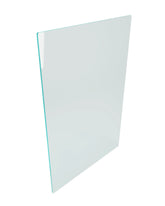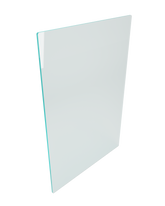Nickel sulphide inclusion breakage in pool fencing is relatively rare but not unheard of. The occurrence of such breakages depends on various factors including the quality of manufacturing processes, the size and distribution of inclusions, and environmental conditions.
Manufacturers employ stringent quality control measures to minimize the risk of nickel sulphide inclusions in toughened glass panels. Heat soaking is one method used to identify and eliminate glass panels with potential inclusions. This process involves exposing the glass to elevated temperatures, causing any panels with nickel sulphide inclusions to break during the manufacturing stage rather than after installation.
While these measures significantly reduce the risk, it's important to note that the absolute elimination of nickel sulphide inclusion breakage is challenging. The unpredictable nature of these inclusions means that even with thorough quality control, some panels may still be susceptible to spontaneous breakage over time.
In practical terms, incidents of spontaneous breakage due to nickel sulphide inclusions are very rare compared to the vast number of installed glass pool fence panels worldwide. However, the consequences of such breakages can be visually dramatic and might raise concerns among pool owners.
To minimize the risk further, regular inspections of the pool fencing, especially after extreme weather conditions, are recommended. Additionally, working with reputable manufacturers and installers who adhere to industry standards and regulations can contribute to a safer pool environment. Glass House AU aims to supply the worlds best glass pool fencing, we supply 1000's of panels each year and have not yet had any break from a nickel sulphide Inclusion.






